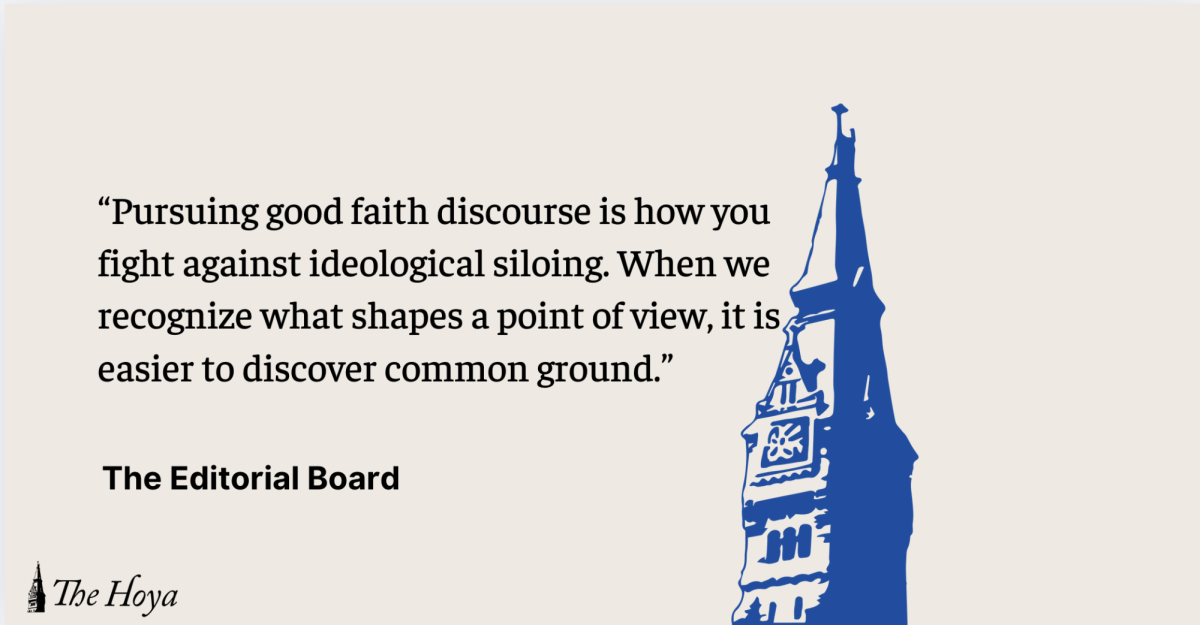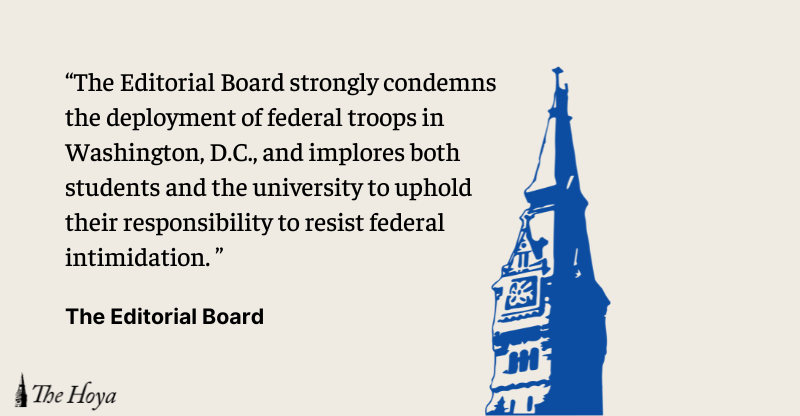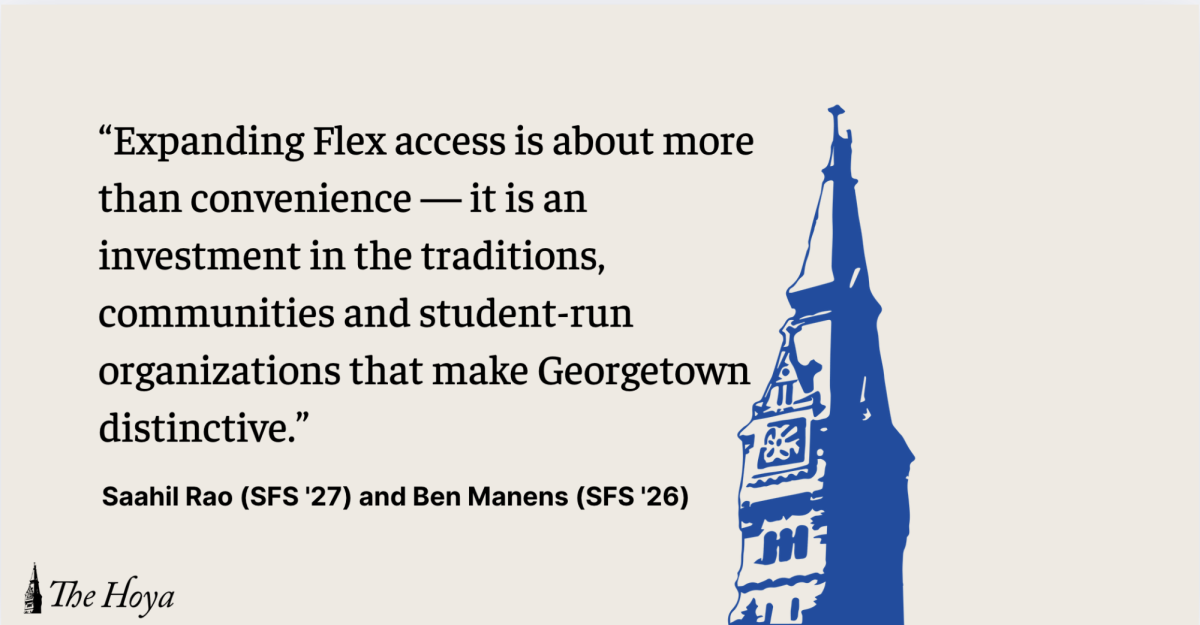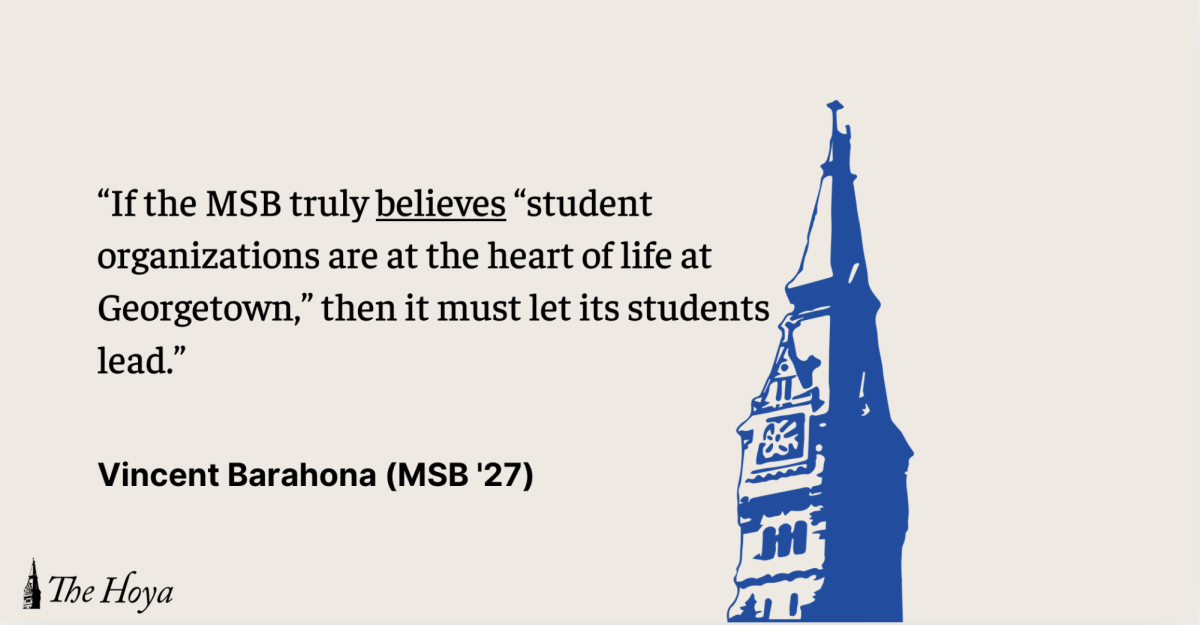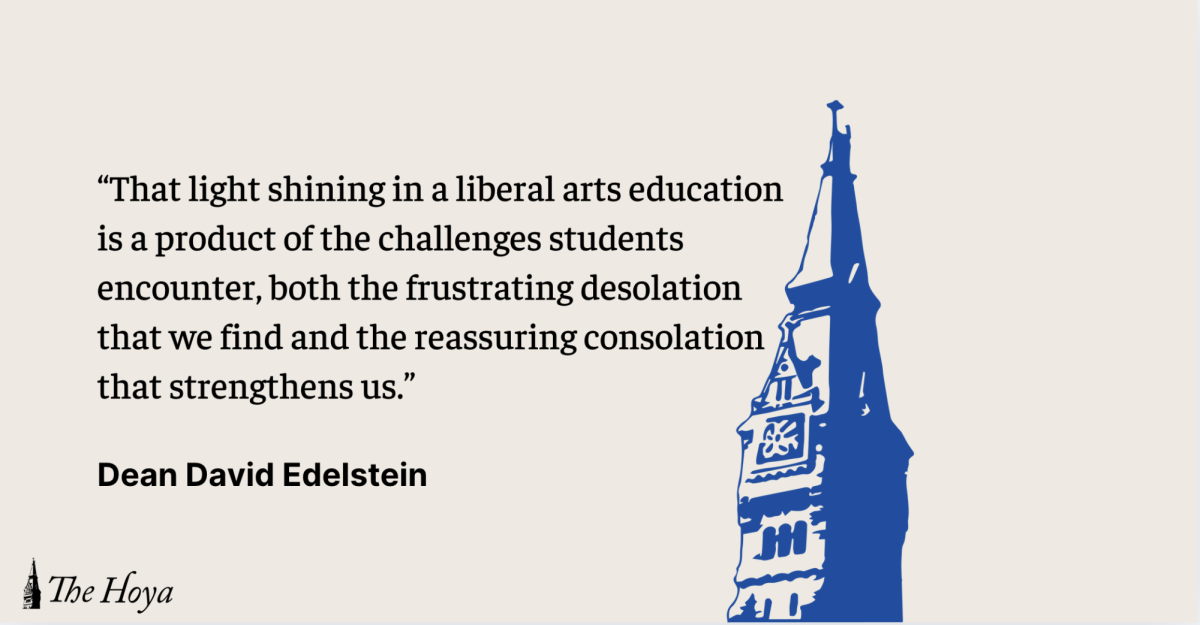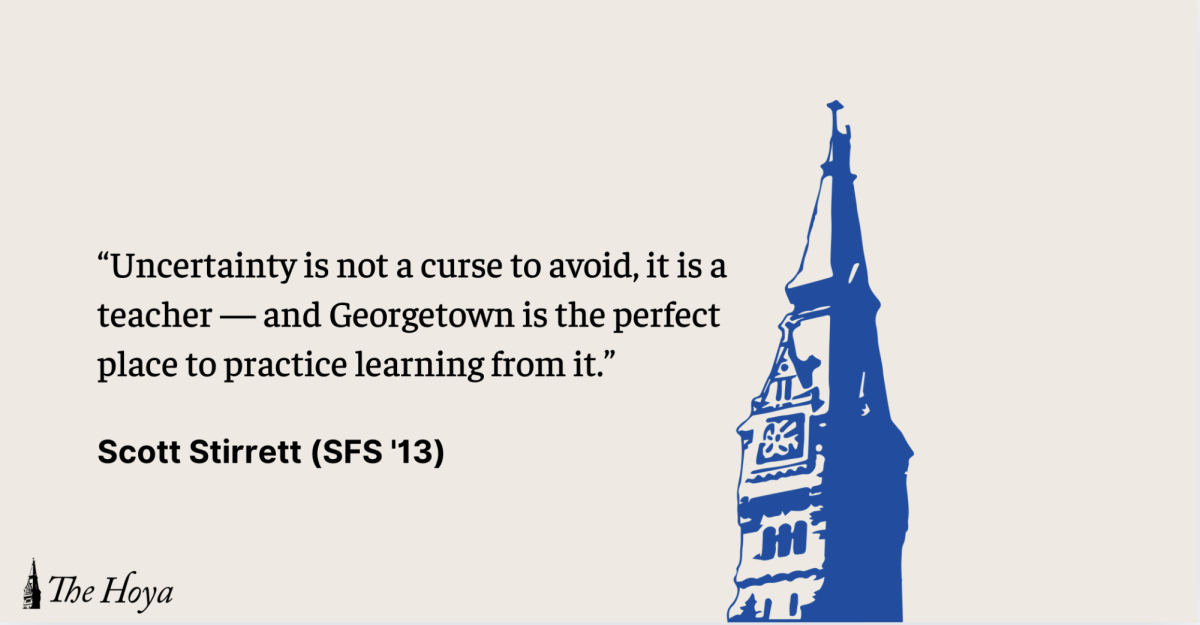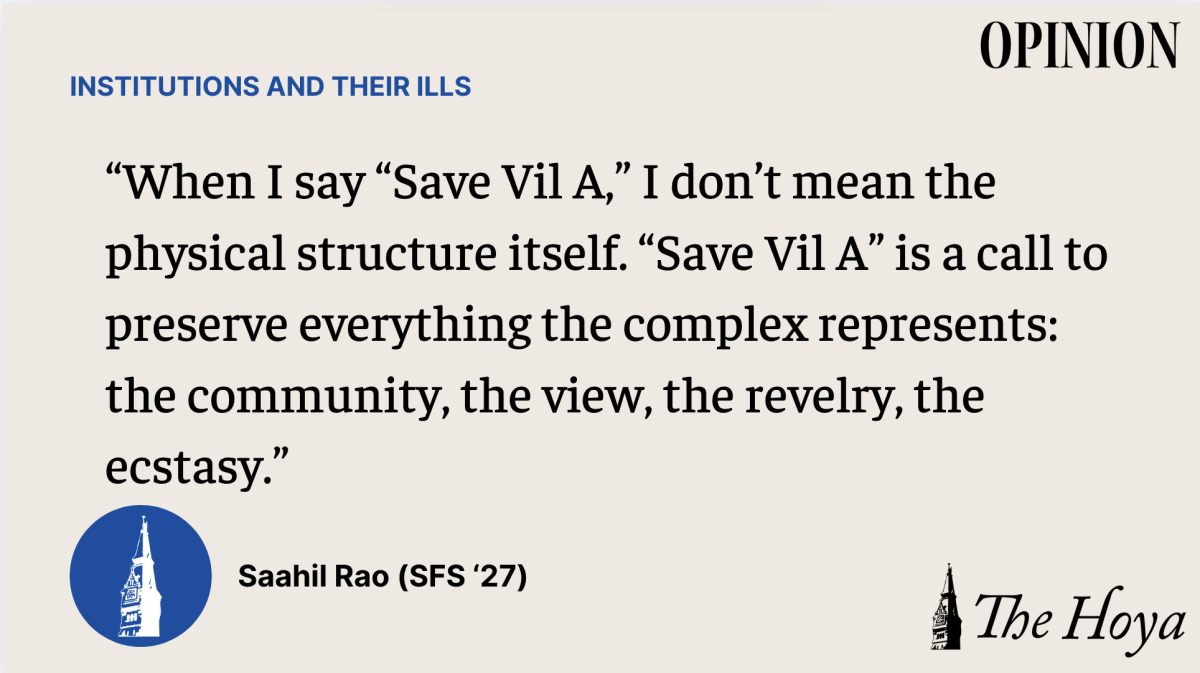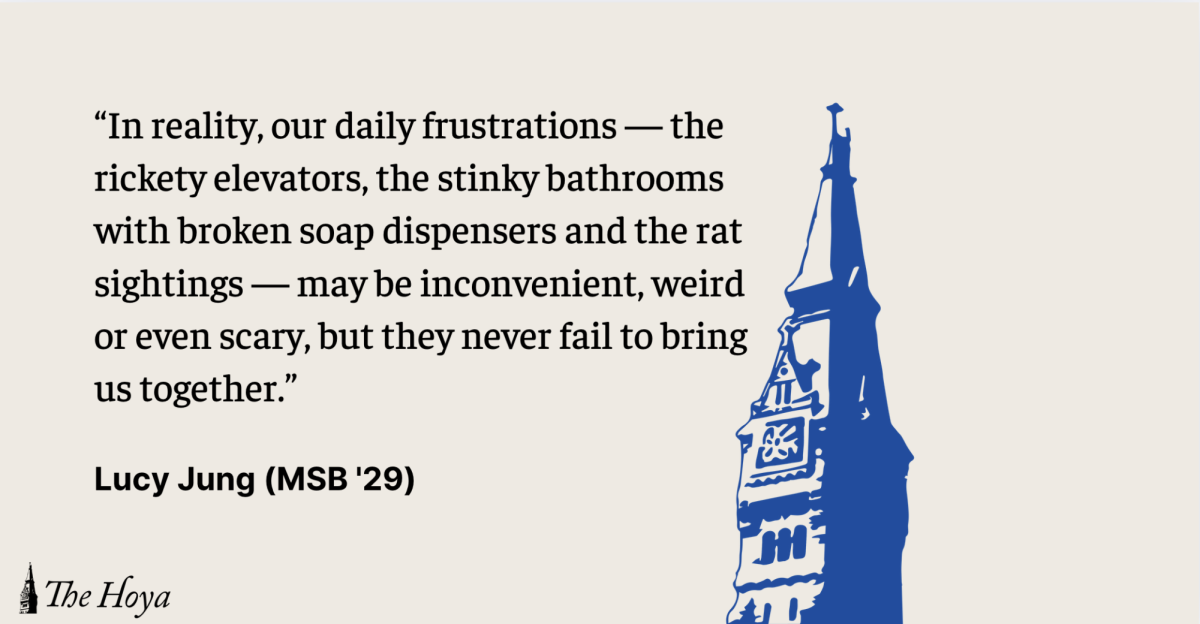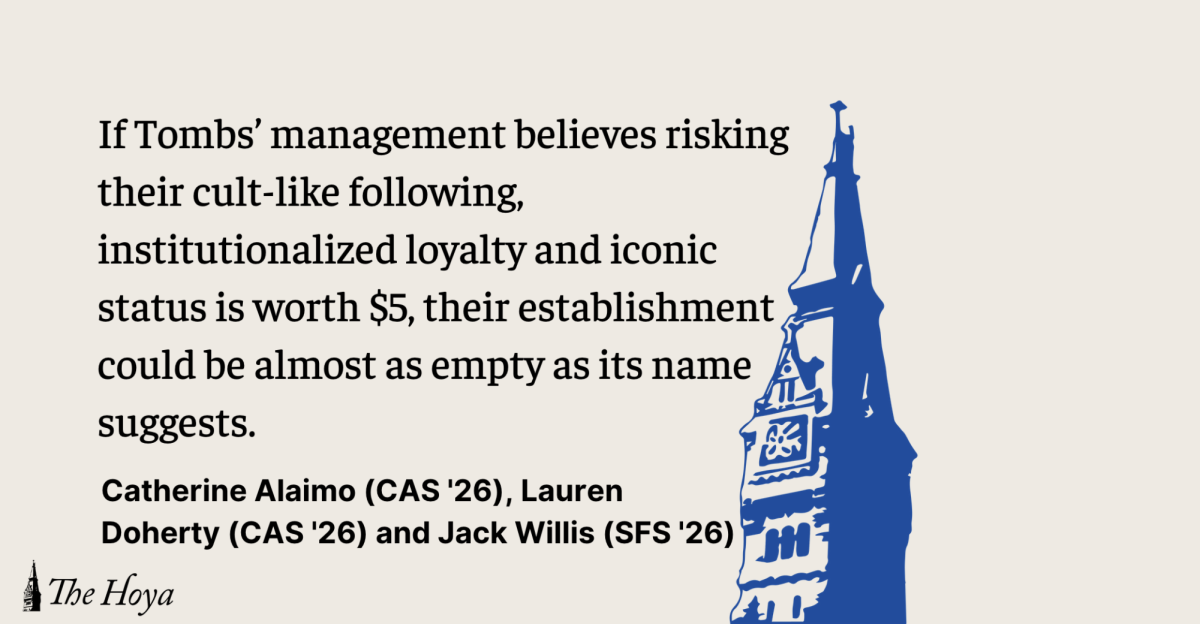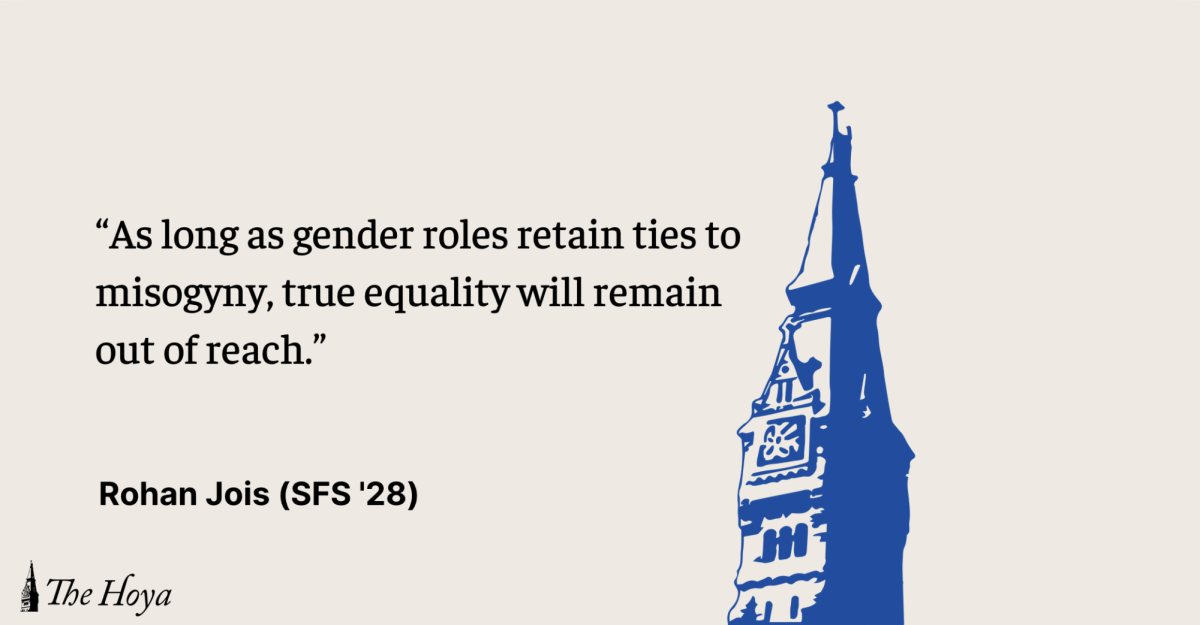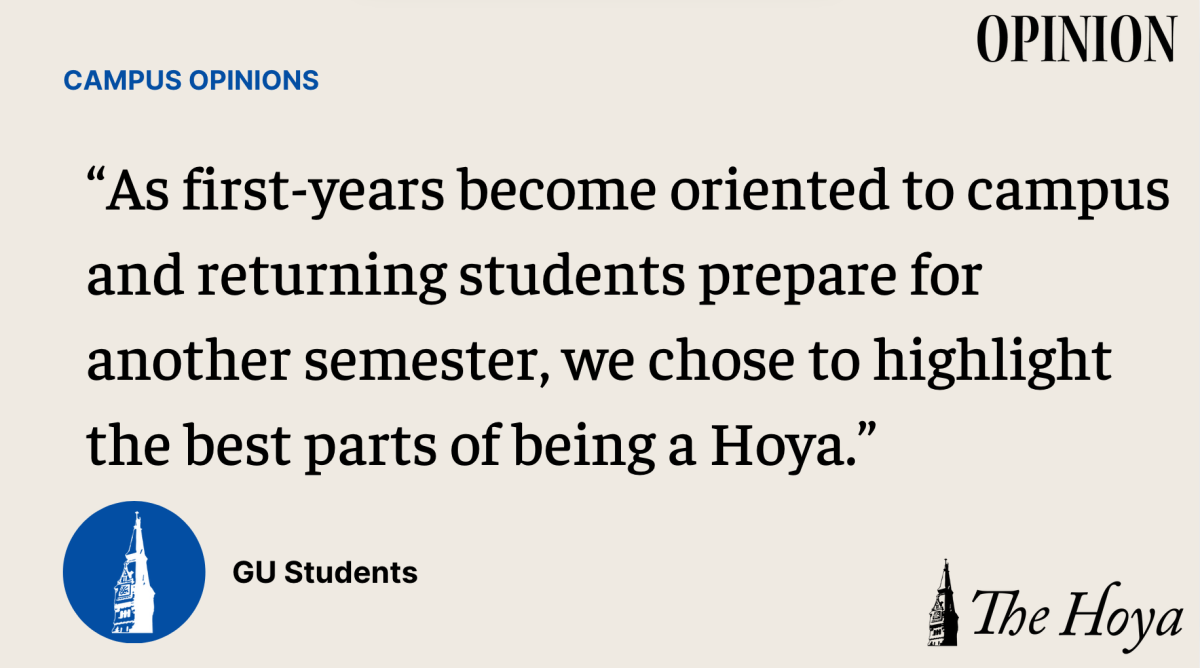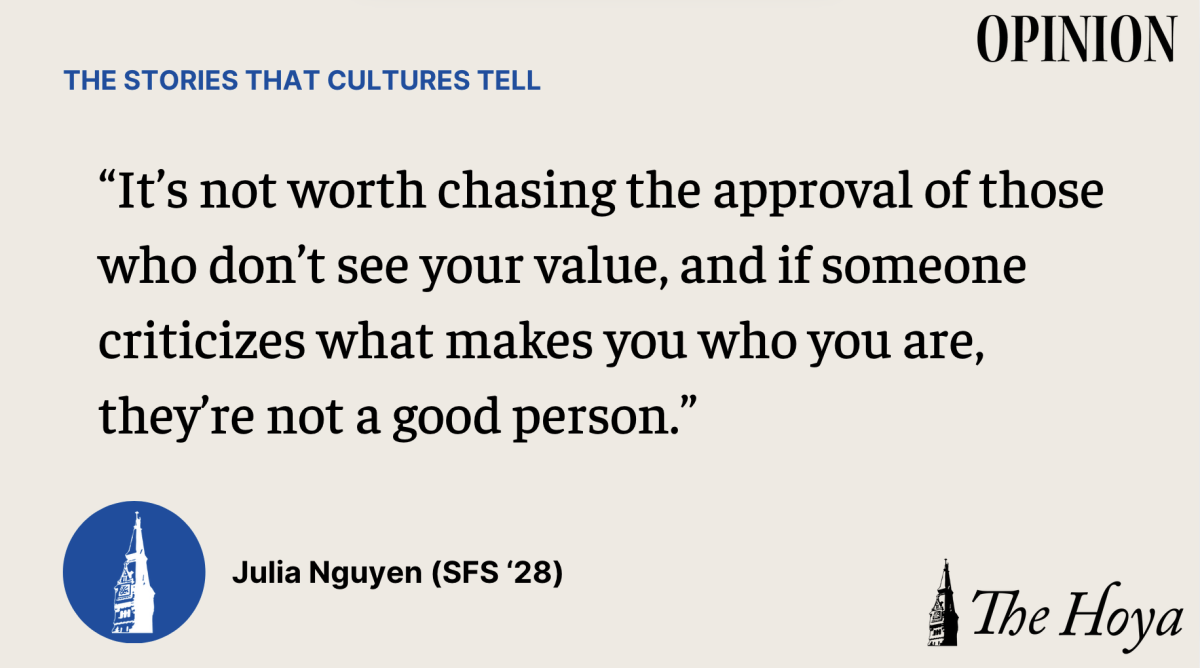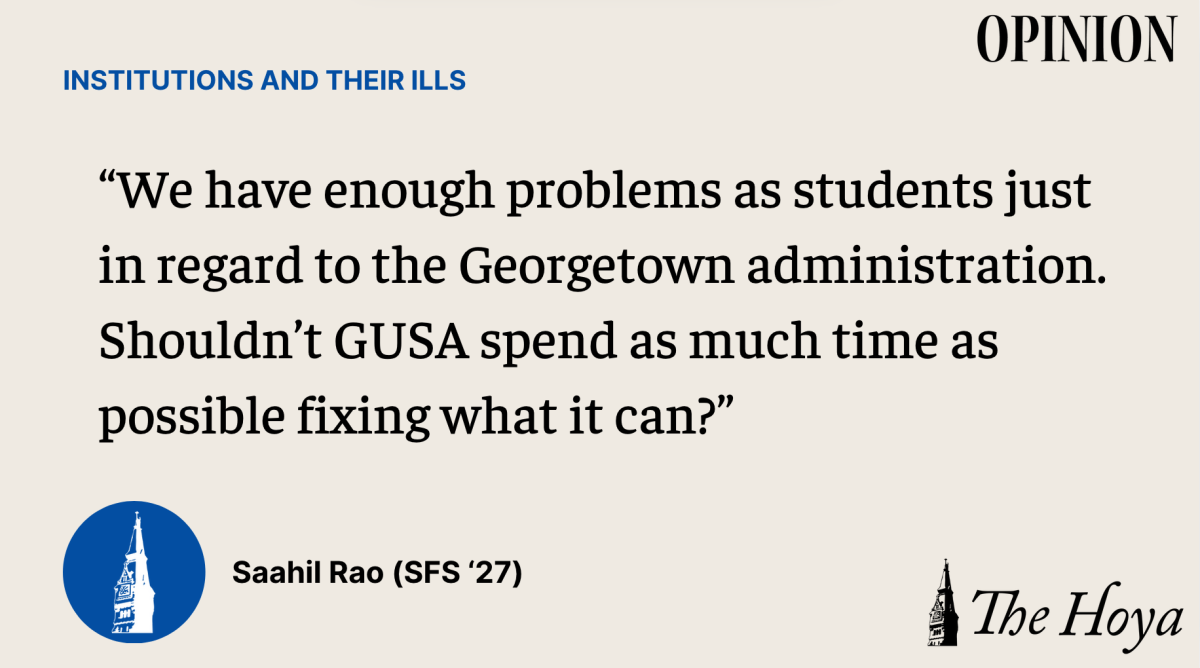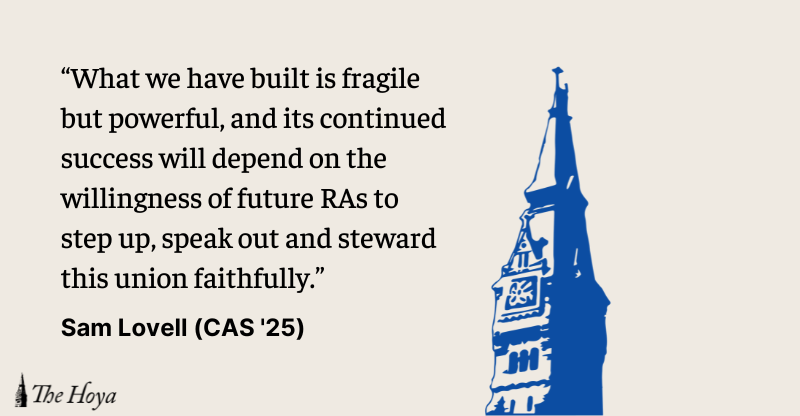After campaigning on an expansive platform spanning reforms to meal plans, installing swings and faithful communication between GUSA and the student body, Georgetown University Student Association (GUSA) President Ethan Henshaw (CAS ’26) and Vice President Darius Wagner (CAS ’27) had a long to-do list on taking office Jan. 12.
These goals seemed ambitious and challenging to fulfill at the time of their election, yet three months into their term, the Henshaw-Wagner administration has shown promise and progress. The Editorial Board commends Henshaw and Wagner for their work thus far: Though many of their projects have started small, their work indicates a potential to meet student needs on a greater scale throughout the rest of their tenure. Despite areas for improvement, the Editorial Board supports the administration’s policy decisions and remains cautiously optimistic while entering the second half of their term.
So far, the Henshaw-Wagner administration has taken strides to increase Georgetown’s financial and physical accessibility. They have implemented electronic benefit transfer, a service allowing the addition of welfare benefits to payment cards, for payment at The Corp location Vital Vittles, added new extension cords to Lauinger Library and Sellinger Lounge and installed accessibility ramps at affinity houses.
The administration has also made strides in increasing GUSA’s accessibility for students, an improvement the Editorial Board applauds. For example, they reintroduced the GUSA bi-weekly newsletter to update the student body on events and policy changes. After promising recurring open house events with administrators in their campaign platform, their administration has held one town hall and two club forums for the student body, including the first Common Spaces Committee meeting April 14, which allowed students to communicate their concerns about campus facilities.
These changes, while somewhat smaller-scale, show great promise. They represent positive signs that the second half of the Henshaw-Wagner administration will leave large-scale impact.
Yet the Editorial Board would like to see these ideas expanded with a broader range of topics, including residential living, Capitol Campus developments and the university’s responses to the Donald Trump administration.
A university spokesperson said GUSA plays a crucial role in facilitating dialogue and ensuring the university factors student opinions into its campus-wide decisions.
“Student input into administrative decisions, particularly those that impact the student experience, is vital,” the spokesperson wrote to The Hoya. “The formal responsibility for providing input is vested in student government. GUSA leaders are asked to participate in committees and meetings, with the intention and purpose of sharing student perspectives on academic and community policies and practices.”
Beyond these smaller-scale efforts, Henshaw has also co-sponsored an upcoming referendum that would call on the university to disclose and divest their investments in companies with ties to the Israeli military.
While this referendum has been divisive, Henshaw said he stands by his decision to be a co-sponsor because he believes it represents GUSA’s role in communicating student concerns.
“It was our responsibility to make sure that we didn’t block them and that they were able to have their voices heard and the students were able to vote on this,” Henshaw told The Hoya. “It’s important to vote and just make sure the university knows where the students stand.”
Yet students have criticized the administration for this effort — both because the referendum did not pass through the typical process within the GUSA Senate and for going beyond the administration’s prerogatives.
GUSA senator Saahil Rao (SFS ’27) said he wishes the administration would remain focused on actionable goals rather than policy proposals he sees as out of their reach.
“Their accomplishments around getting more HSFC furniture (which we were proud to work with them on in the Senate), delivering swings and buying Lau extension cords are really great,” Rao wrote to The Hoya. “I wish they would focus on more stuff like that and less on ends like a divisive divestment/Boycott, Divestment, and Sanctions referendum which admin will never adopt.”
The Editorial Board appreciates how Henshaw and Wagner have used all methods to fulfill their campaign promise to be more cognizant of student voices — but hopes that they will follow proper channels in future referendums.
Another area of concern for the Editorial Board is financial transparency. While The Hoya has access to an itemized list of GUSA expenses, the finances are not linked to GUSA spreadsheets or announcements. The Editorial Board appreciates this transparency but wishes these financial data points were more accessible to the general student body.
Despite these concerns, the Editorial Board is optimistic for the second half of the Henshaw-Wagner administration’s term. We encourage the administration to focus on tangible policy proposals, including establishing stronger relationships with administrators and improving student quality of life. The Editorial Board looks forward to continued improvements to campus life thanks to this GUSA executive.
Wagner said the administration’s continued priority is to establish lines of communication with the administration, including a new university president once selected.
“I think for us, it will be a priority to ensure that we’re connected with that new president and that we share the concerns of students, ranging from transportation to facilities, especially protecting our international and undocumented students and promoting our values of diversity,” Wagner said.
The Henshaw-Wagner administration has centered important goals for student life, and for that, we commend them. As we await further progress on the administration’s goals, we urge Henshaw and Wagner to focus on tangible changes instead of uncertain policy initiatives to continue their work of leaving Georgetown in a better place.
The Hoya’s Editorial Board is composed of six students and is chaired by the opinion editors. Editorials reflect only the beliefs of a majority of the board and are not representative of The Hoya or any individual member of the board.



